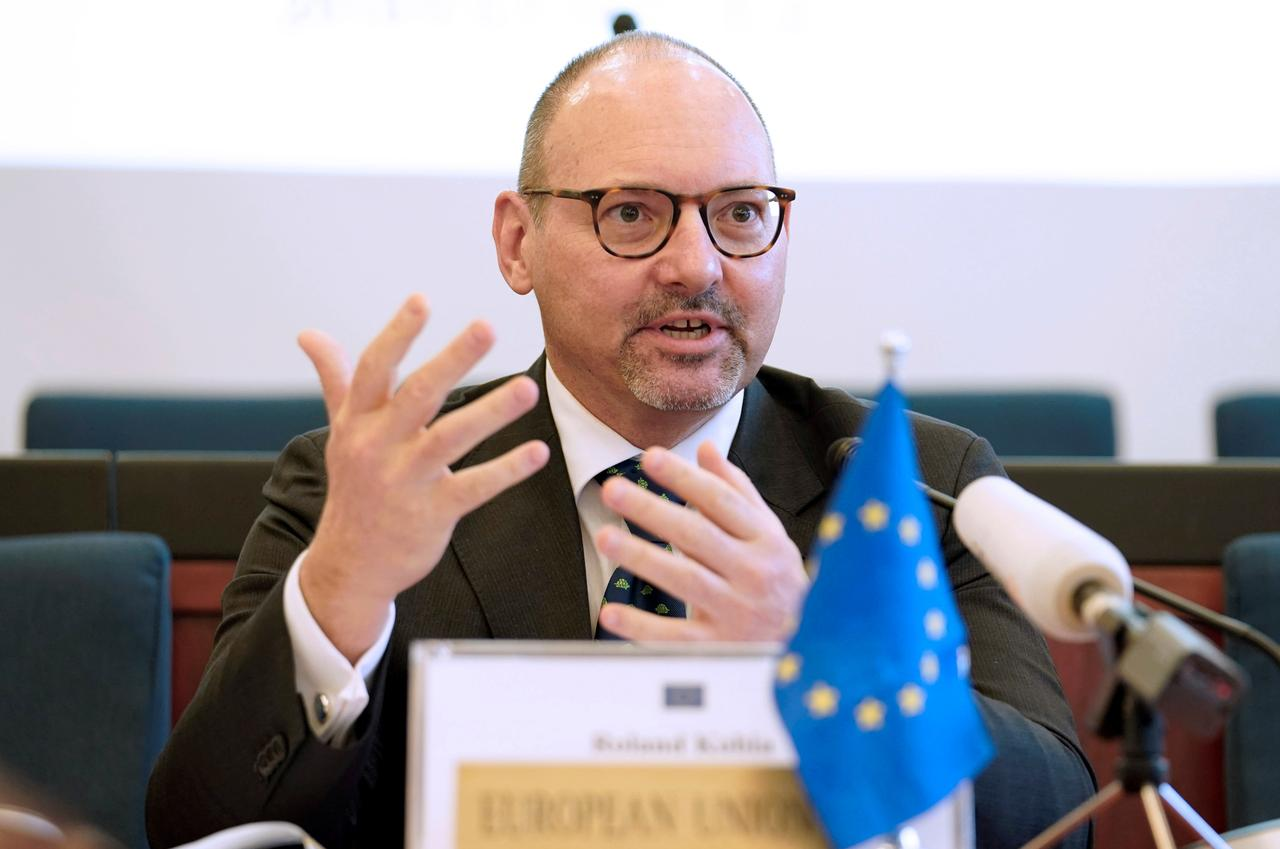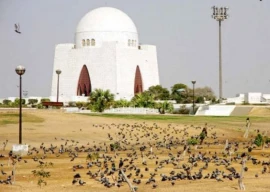
The envoy, who is on a two-day visit to the country, called on Foreign Secretary Tehmina Janjua at the Foreign Office on Thursday. The two leaders exchanged views on the ongoing efforts for peace in Afghanistan, said a press statement issued by the FO.
Janjua reiterated Pakistan's "continued commitment to peace in the region and a peaceful neighbourhood".
Stressing that "peace and stability in Afghanistan was crucial for Pakistan", he added Islamabad facilitated talks between the United States and the Taliban in "good faith and as part of shared responsibility".
The foreign secretary also hoped that the "talks would lead to intra-Afghan dialogue".
Acknowledging the EU's role in the efforts, the foreign secretary underscored the importance of working with the EU to push for peace in the war-torn country.
The EU envoy emphasised significance of "peace and stability in Afghanistan for EU as much as for neighbouring countries" and appreciated Pakistan's "important contribution towards peace efforts."
An opportunity is available today that must not be missed at any cost, he added.
US envoy says 'real strides' made in Afghan Taliban talks
Pak-brokered talks between US-Taliban
Earlier this year, a three-day parleys were attended by representatives of the Afghan Taliban, the US as well as officials from Pakistan and Saudi Arabia.
It was the first time that the Taliban’s military and political leaders attended a negotiation – something that has renewed hopes of a possible peace deal. Previously, the Taliban were only represented by their political office in Qatar.
The presence of the Taliban leaders like Mullah Amir Mutaqi, Qari Yahya, Mullah Mohibullah Hamas and Mullah Abbas Akhund at the UAE talks suggests seriousness of the insurgent group towards the latest round of discussions facilitated by Pakistan.
Experts urge Pakistan to be watchful of US-Taliban peace deal
Afghan peace process
The latest push for a peace came after President Donald Trump wrote a letter to Prime Minister Imran Khan, seeking Pakistan’s help for the negotiated settlement of the Afghan conflict.
In the letter, the United States had sought PM Imran's full support to advance Afghan peace process. The correspondence came after Trump accused Pakistan of "doing nothing" despite receiving "billions of dollars" in aid.
PM IK's response to Trump's offensive tweets against Pak compelled Trump to do a reality chk & write to PM Khan asking for help in bringing peace to Afghanistan! So much for those in Pak who were quivering after IK's tweets went out!
— Shireen Mazari (@ShireenMazari1) December 4, 2018
Of course we should have captured Osama Bin Laden long before we did. I pointed him out in my book just BEFORE the attack on the World Trade Center. President Clinton famously missed his shot. We paid Pakistan Billions of Dollars & they never told us he was living there. Fools!..
— Donald J. Trump (@realDonaldTrump) November 19, 2018
The premier had hit back to the allegations by advising Washington to assess its efficiency in the war on terror instead of making Pakistan a scapegoat for its failure.
Trump’s false assertions add insult to the injury Pak has suffered in US WoT in terms of lives lost & destabilised & economic costs. He needs to be informed abt historical facts. Pak has suffered enough fighting US's war. Now we will do what is best for our people & our interests
— Imran Khan (@ImranKhanPTI) November 19, 2018
Although both the US and Pakistan now have a commonality of views on seeking a political solution to the Afghan problem, the trust deficit between the two is the real stumbling block. Relations between the two countries are tense despite recent efforts to reset the troubled ties.
At the heart of their stalemate is the US insistence on Pakistan to do more to bring the Afghan Taliban on to the negotiating table. Washington still believes that Islamabad holds considerable sway over the insurgent group.
1731570357-0/elon-musk-(1)1731570357-0-405x300.webp)
-(1)1717678110-0/Kendrick-(1)-(1)1717678110-0-165x106.webp)






1732428532-0/BeFunk_§_]__-(43)1732428532-0.jpg)








COMMENTS
Comments are moderated and generally will be posted if they are on-topic and not abusive.
For more information, please see our Comments FAQ